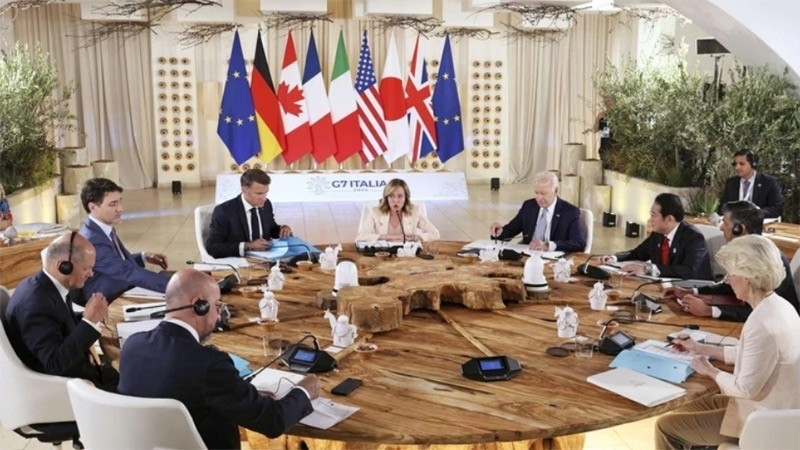One week ahead of the G7 Summit, scheduled to take place from June 15 to 17 in Kananaskis, Canada, the host country has announced its key priority objectives.
With the aim of building a stronger economy, Canada will seek coordinated agreements and actions based on three core missions: strengthening global security, accelerating energy security and digital transition, and securing the partnerships of the future.
The agenda also includes efforts to address armed conflicts, particularly the war in Ukraine; combat foreign interference and transnational crime; and enhance emergency responses to wildfires.
On economic and technological matters, Canada has emphasised the importance of fostering more sustainable supply chains for critical minerals, enhancing energy security, and promoting responsible innovation in artificial intelligence (AI) and quantum technologies.
The host nation also aims to position the G7 as a global platform for building coalitions, mobilise private investment in infrastructure, create higher-paying jobs, and open dynamic markets where businesses can compete and succeed.
Through the announcement by Canada, G7 reaffirms its resolve to take the lead in addressing urgent issues, amid growing global economic uncertainty marked by inflation, high debt burdens, and persistent supply chain disruptions.
Meanwhile, climate ambitions are faltering in several countries, even as natural disasters and droughts continue to inflict severe damage on communities and economies. Additionally, the biodiversity crisis is taking a toll on agriculture, fisheries, and tourism in many regions, undermining food security and livelihoods.
Coinciding with the 50th anniversary of the first G7 summit, this year’s meeting serves as a major test of the group’s credibility and Canada’s leadership capacity. Notably, Canada’s G7 presidency takes place against a backdrop of political turbulence.
Domestically, former Prime Minister Justin Trudeau has stepped down, with Mark Carney now taking the helm. Internationally, the administration of US President Donald Trump has increased pressure by imposing tariffs on other G7 economies. More notably, Washington has floated ideas of a merger with Canada, something that Ottawa has firmly rejected as a threat to national sovereignty.
Tensions within the transatlantic relationship, especially in light of President Trump’s new tariff policies, may also impact this year’s G7 agenda. Furthermore, unresolved issues surrounding NATO persist. In particular, recent comments from the White House suggesting the US might not uphold Article 5, the cornerstone of NATO’s collective defence, have sent shockwaves across Europe.
Despite anticipating many challenges, Canada has affirmed its determination to ensure the success of the G7 Summit. In addition to the G7 members, Canada has invited leaders from other nations, including Ukraine, Australia, South Africa, and Brazil. Notably, the invitation extended to Prime Minister Narendra Modi, despite ongoing diplomatic tensions between Canada and India, demonstrates the host’s commitment to its core priorities.
Prime Minister Mark Carney has repeatedly pledged to restore Canada’s global leadership in multilateralism. The country’s immediate challenge is guiding the G7 Summit towards consensus, advancing progress on climate, nature, clean energy, inclusive trade, and institutional reform to bring global stability.
















